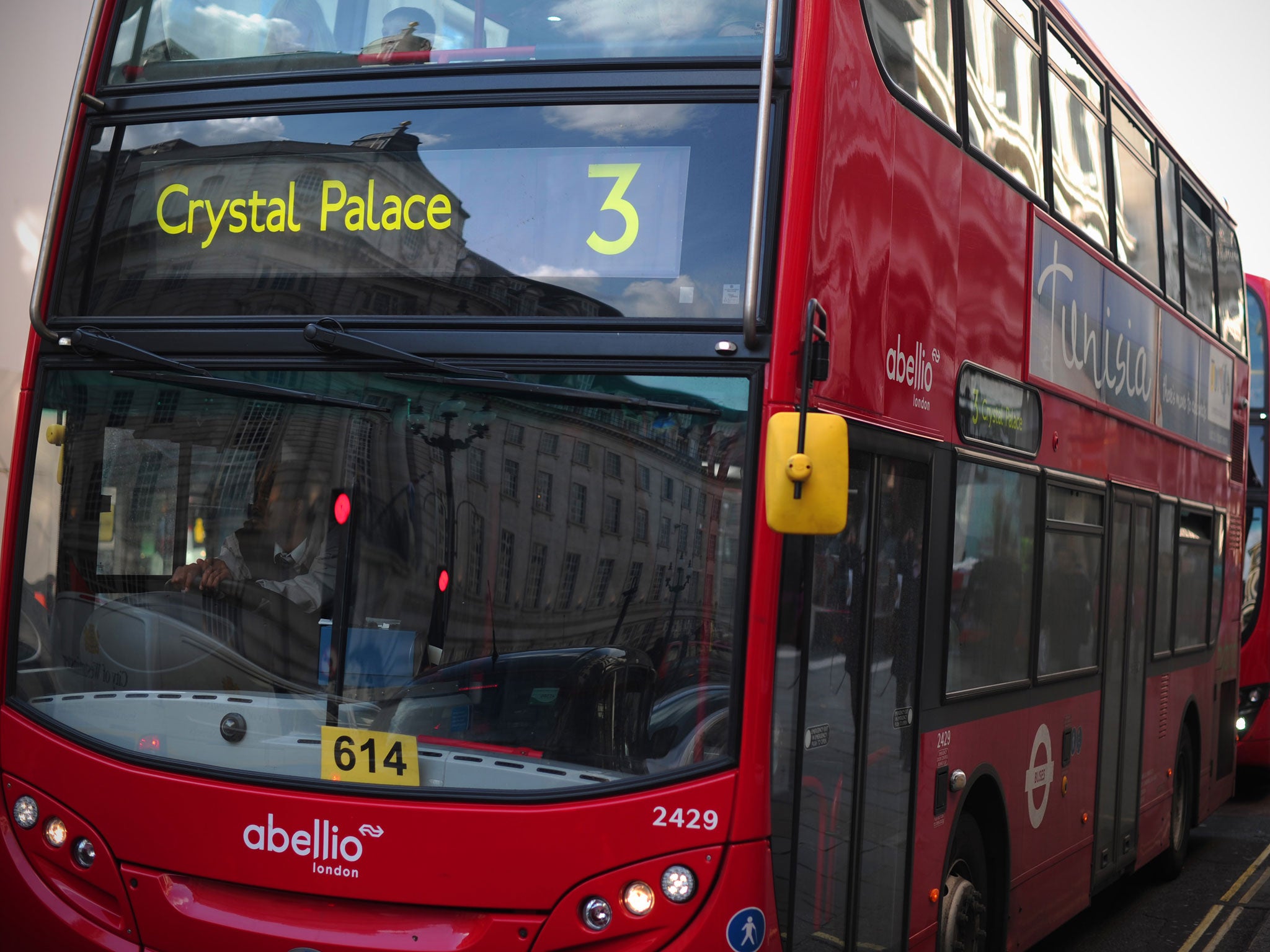London buses will go cashless on 6 July
TfL made the announcement after it held a consulation on the idea last year

Your support helps us to tell the story
From reproductive rights to climate change to Big Tech, The Independent is on the ground when the story is developing. Whether it's investigating the financials of Elon Musk's pro-Trump PAC or producing our latest documentary, 'The A Word', which shines a light on the American women fighting for reproductive rights, we know how important it is to parse out the facts from the messaging.
At such a critical moment in US history, we need reporters on the ground. Your donation allows us to keep sending journalists to speak to both sides of the story.
The Independent is trusted by Americans across the entire political spectrum. And unlike many other quality news outlets, we choose not to lock Americans out of our reporting and analysis with paywalls. We believe quality journalism should be available to everyone, paid for by those who can afford it.
Your support makes all the difference.From 6 July it will no longer be possible to hop on a London bus and pay with cash, the capital’s transport body has confirmed.
Transport for London (TfL) cited a “considerable drop” in the number of people who pay for their bus fare using cash as the reason for making London’s buses cashless.
In 2000 around 25 per cent of journeys were paid for with a cash fare, today that figure stands at around one per cent, it said.
The move follows a consultation that ran last summer, to which 37,000 Londoners responded.
A third agreed that cash fares should be removed, with three quarters indicating that they do not pay for the bus using cash.
In what appears to be a response to criticism that the changes could negatively affect vulnerable passengers, TfL added: “This change will not affect 99 per cent of bus passengers who already pay for their journeys using Oyster, prepaid tickets, contactless payment cards or concessionary tickets.
“The latter group represents a third of all customers and includes children and young people, older and disabled people and the unemployed.”
“TfL research shows this change is also unlikely to affect tourists as the vast majority use Oyster or a prepaid ticket to get around the capital," it added.
It has also responded to concerns raised during the consultation that passengers in outer London, where there are less Oyster top-up machines, will be affected.
TfL has said it will introduce a “one more journey” system, allowing passengers to use the bus if they have a positive balance on their card, but not enough for a single journey.
Join our commenting forum
Join thought-provoking conversations, follow other Independent readers and see their replies
Comments